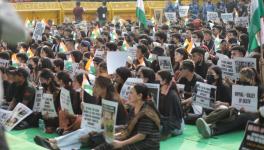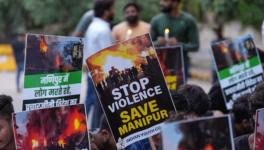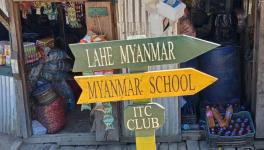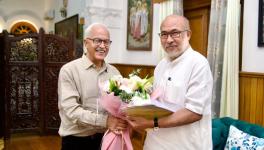The Troll Army Strikes at the Manipuri Pangal Community
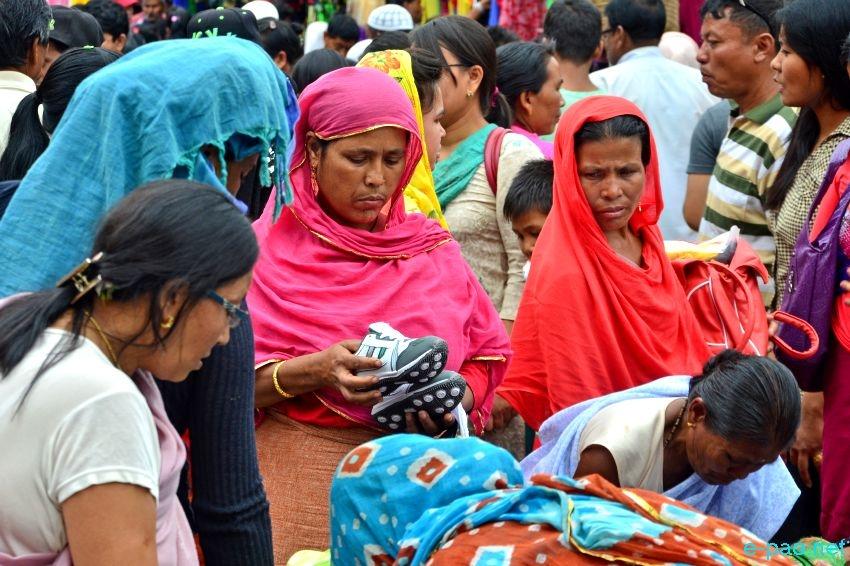
Image Courtesy: E-Pao
The Manipur Chief Minister, N. Biren Singh’s comments at Madhavpur drew condemnation from sections of Manipur’s civil society. However, almost like clockwork, the ‘troll army’ went to work poisoning cyberspace with communalism. According to a Press Release from the Manipur Students Association Delhi (MSAD), Pangal students were subjected to abuse and were called ‘drug dealers’, ‘ISI agents’, and other such epithets. Pangal is a name given to the Muslim community of Manipur, hence they were the prime targets of abuse. This then brings us back to who the Pangals are.
Various historical sources have different dates for when Islam first entered Manipur. Some sources place the date at around 930 AD. However, the date all sources seem to confirm as definitive is 1606 AD. Since Hinduism entered Manipur after the reign of Pamheiba, after 1700 AD, one can safely say that Muslims lived in Manipur before the kingdom adopted Hinduism. The origin of the Pangal community is equally varied. In the sources that place their entry prior to 1606, they entered as gun makers or to extract salt from the brine springs. However, the events of 1606 state that they settled after the prince Sanongba requested aid from Cachari King Dimasha Prataphil to defeat his brother Chingsomba.
Dimasha Prataphil was aware of his military strength and knew that his forces alone could not win. Hence, he requested the Nawab of Taraf, Muhammad Najira to send forces to his aid. The combined forces were victorious and seated Sanongba on the throne. In appreciation for their aid, he allowed the Muslim soldiers to settle in the valleys of Manipur. Through marriage, adopting the Meiteilon language and various Meitei practices, which did not violate Islam, the Muslim soldiers were eventually naturalised as the Pangals. The etymology of the name is also interesting as some say it is the medieval Meiteilon pronunciation of ‘Bangal’. Another account from a Persian source states that the name Pangal was given due to their fortitude in battle, and the Pangal means ‘strength’ in Meiteilon.
In 1972 and 1974 Mohammed Alimuddin of the Manipur Peoples Party (MPP) was the Chief Minister. The MPP has not had an easy history and is currently an NDA ally. Considering that the Chief Minister of Manipur was a Muslim at that time, it should indicate that the religious communalism was not as evident in Manipur as it is now. The rise of Islamic militant groups in Manipur during the late 1980s and early 1990s is another indicator of when things started going wrong.
Therefore, when the ‘troll army’ targeted the Pangal community, they attacked Manipur’s composite history and culture. These acts will become a test of the strength of Manipuri society on yet another front. The conditions put forth by the Nawab of Taraf in 1606 were that his soldiers and their descendants should not be discriminated against. After Manipur’s ‘merger’ with the Indian Union, there seems to be no way of enforcing this historical promise. Hence, the onus is on the people of Manipur to discredit this divisive agenda. The Press Release from the MSAD has shown that at least the Manipuri students in Delhi are taking note and are against the hate mongering by the troll army.
Get the latest reports & analysis with people's perspective on Protests, movements & deep analytical videos, discussions of the current affairs in your Telegram app. Subscribe to NewsClick's Telegram channel & get Real-Time updates on stories, as they get published on our website.













